
| Digital Aet by Shanali Perera www.changinglanes.me |
|||
| FB Changing Lanes- Healing With Art | |||
Planet SOS, September 21, 2019
 Letters, mail, the postal service, and stamps have always been important to us. We love post offices! While Visakha served in the Peace Corps in the Philippines in the sixties, she received innumerable letters and packages from home in Baroy and Marawi. Once, her mother sent her some clip-on sunglasses, cleverly packed in popcorn--real popcorn--which, somewhere along the way, was eaten by real mice. Nevertheless, the sunglasses, rattling in the box, were safely delivered to her, thanks to the efficient international postal system! During Ken's year in France, he depended entirely on the postal system to keep in touch with his family. When he visited Wesleyan upon his return, he learned that, if he had not mailed a letter to the university asking for a leave of absence (which was never answered) he would not have been accepted for readmission. In Japan, we listened for the postman almost every day. We would immediately recognize the squeal of his bicycle braking and run to see what he had brought.
Letters, mail, the postal service, and stamps have always been important to us. We love post offices! While Visakha served in the Peace Corps in the Philippines in the sixties, she received innumerable letters and packages from home in Baroy and Marawi. Once, her mother sent her some clip-on sunglasses, cleverly packed in popcorn--real popcorn--which, somewhere along the way, was eaten by real mice. Nevertheless, the sunglasses, rattling in the box, were safely delivered to her, thanks to the efficient international postal system! During Ken's year in France, he depended entirely on the postal system to keep in touch with his family. When he visited Wesleyan upon his return, he learned that, if he had not mailed a letter to the university asking for a leave of absence (which was never answered) he would not have been accepted for readmission. In Japan, we listened for the postman almost every day. We would immediately recognize the squeal of his bicycle braking and run to see what he had brought.  |
|||||||||||||
|
|||||||||||||
In Japan, our house in Kashihara, was almost next door to a tiny local post office. When we first moved there, that office could not even register a letter, let alone handle an international money transfer. As soon as the postmaster learned of the activities of Buddhist Relief Mission and Burmese Relief Center--Japan, however, he managed to upgrade the facility so that he could do both for us. He became a close friend and a strong supporter of our work.
As we traveled back to the US from Japan from Oct 1978 to Oct 1979, we visited a myriad of post offices, large and small, to check Poste Restante for letters from family and friends. We arranged SERVAS visits in each country by mail, enclosing in each letter an international reply coupon honored by the Universal Postal Union, so that each host could easily respond to our request c/o Poste Restante. To lighten our backpacks, we posted innumerable newspapers, books, and gifts to the States from even the remotest sites. Being serious photographers, we used Ektachrome and Kodachrome film almost exclusively, for more than four thousand slides. Most of the rolls were mailed directly to Kodak for developing and sent to our address in Texas. In all of that posting, we never lost a thing!
 |
|
| In this set of 100 commemorative Sri Lankan stamps, every stamp is different. Click to enlarge. |
|
 In our classes at Seifu Gakuen in Osaka, we often played games, in which the prizes were used international stamps. We had plenty of these from the letters we received from family and SERVAS friends around the world. The biggest collection, however, came from Thailand, thanks to the pris'niy klang, the Central Post Office in Bangkok. Each summer, in Thailand, we purchased tons of handicraft, mostly refugee-made, to sell in Japan to raise money for the students and refugees. Just before we left Bangkok, we always took all of this craft, to the post office and asked the friendly attendant in the packing center to pack it in large boxes, which we then carried to the service window, where the clerk weighed it and figured the cost of postage. Then we went to the philatelic counter to buy beautiful stamps in small denominations. In the middle of the lobby, we carefully covered every side of each box with hundreds of stamps. It became a tradition, and the clerks who remembered us greeted us warmly and joined in the fun.
In our classes at Seifu Gakuen in Osaka, we often played games, in which the prizes were used international stamps. We had plenty of these from the letters we received from family and SERVAS friends around the world. The biggest collection, however, came from Thailand, thanks to the pris'niy klang, the Central Post Office in Bangkok. Each summer, in Thailand, we purchased tons of handicraft, mostly refugee-made, to sell in Japan to raise money for the students and refugees. Just before we left Bangkok, we always took all of this craft, to the post office and asked the friendly attendant in the packing center to pack it in large boxes, which we then carried to the service window, where the clerk weighed it and figured the cost of postage. Then we went to the philatelic counter to buy beautiful stamps in small denominations. In the middle of the lobby, we carefully covered every side of each box with hundreds of stamps. It became a tradition, and the clerks who remembered us greeted us warmly and joined in the fun.All of this was possible because of the cooperation of post offices around the world. Among the many dastardly things Trump is doing is withdrawing from the world's second oldest international organization, The Universal Postal Union (UPU), which was established by the Treaty of Bern of 1874. In October 2018, the Trump administration claimed that the UPU regulations gave unfair advantage to China and declared that, unless the rules were drastically changed, the US would pull out of the UPU on October 17, 2019. If that happens, and the date is rapidly approaching, the US Government will have to make a separate treaty with virtually every other country, or all international mail to every American resident will have to be delivered via a third country. This is just one more outrageous example of Trump ignoring diplomacy and creating chaos, which is detrimental to the United States, by demanding that the world bow to his will. Take a look at this list of the other international organizations that Trump has pulled out of and the treaties he has revoked:
| The United Nations Relief and Works Agency (UNRWA) |
The United Nations Educational, Scientific and Cultural Organization (UNESCO) |
| The Iran Nuclear Deal |
The United Nations Human Rights Council (UNHRC) |
| The Trans-Pacific Partnership (TPP) |
The Paris Climate Agreement |
| The North American Free Trade Agreement (NAFTA) | The Arms Trade Treaty |
For details on these, see
"Trump has pulled out of international agreements before. Here's a list," by Martin Finucane and Jeremiah Manion Globe Staff, February 1, 2019
and
"Trump pulling U.S. out of U.N. arms treaty, heeding NRA," by Roberta Rampton, April 26, 2019 https://truthout.org/articles/over-1100-congregations-have-agreed-to-provide-sanctuary-to-migrants/
Republicans have long vowed to make government small enough to drown in a bathtub. Trump is trying to eliminate all international agreements and accords. Is this what it means to run government like an (unregulated) business?
![]() We have had an Amazon seller account for about 20 years, but, over time, we've grown to loathe Amazon as a violation of all we'd like to stand for. The more we've learned of Bezos, Amazon's exploitation of its non-unionized work force, all the while paying no taxes, it's seemed the very antithesis of community and commons. Like Uber and AirB&B, Amazon symbolizes the commodification of everything--the reduction of everything to an APP. [link <>]
We have had an Amazon seller account for about 20 years, but, over time, we've grown to loathe Amazon as a violation of all we'd like to stand for. The more we've learned of Bezos, Amazon's exploitation of its non-unionized work force, all the while paying no taxes, it's seemed the very antithesis of community and commons. Like Uber and AirB&B, Amazon symbolizes the commodification of everything--the reduction of everything to an APP. [link <>]
For about ten years, we have participated in the FBA (Fulfillment by Amazon) program. This means that we can send books to Amazon, where they are listed and sold the same as Amazon books. In addition to our own books, Buddhist Crossword Puzzles and A Pilgrim's Comapanion we've provided an outlet for friends' books --Lal's Playing Pillow Politics at MGK and Soh Lung's Beyond the Blue Gate, and Jennie's Near Future. We receive notice whenever any item is sold, and, at the end of each month, Amazon send us a remittance for the sales. Of course, Amazon keeps a part of each sale, and they charge extra for "long-term storage." Of course, Amazon makes a profit, but we profit from the access to the Amazon marketplace, and it is easy to sell books.
During the ten years that we have been in this program, we have sent many parcels of books to Amazon from our friendly Kandy Post Office. Since Amazon normally expects that a parcel will arrive at their warehouse a few days after it is posted, we have repeatedly explained that, since our parcels are being sent SEA MAIL from Sri Lanka, delivery may take two months or more. This had never been a problem before.
In June 2019, we sent two parcels, one of 4.5 kg (Buddhist Crossword Puzzles) and the other of 27 kg (Jataka Tales of the Buddha). Though sent about one week apart, they left Colombo on the same day. The smaller one, though posted later, arrived in California earlier. It was processed, and the books are available on the Amazon site. On our seller account website, we are able to track the progress of each shipment, and we learned that the larger parcel, containing had arrived in California at the end of June.
On July 6, this hefty parcel arrived back at the Kandy Post Office marked "Refused. Return to Sender." We immediately called Amazon Support to inquire. It was extremely difficult to get anyone to talk with us, but, finally, an agent informed us that the parcel had been refused because the shipping service (in this case, the US Post Office) had not scheduled an appointment for delivery. We told her that we have never heard of the post office making an appointment for delivery and that we had no idea that such a thing was necessary or even possible, She insisted that it was necessary, but she was never clear exactly as to who should make the appointment. At one point she seemed to be saying that, in the future, we should be sure to make such an appointment. We explained the impossibility of our scheduling any appointment for delivery from Sri Lanka. The agent was not interested in any objection we made, nor in learning that no other shipment had encountered this problem. She simply kept repeating that an appointment had to be made, Without an appointment, any shipment would be refused. We informed her that, if that were indeed the case, we wold never make another shipment to Amazon, which means that, when our current stock is sold, we will no longer be selling anything. With that, we ended the call.
For the parcel which was refused, we'd paid more than 100 dollars in postage. Just as important, however, is the loss of the Amazon marketplace. When the Jataka have been in stock, we have sold at least one book a week. Amazon is one of the first places people go to find a book. No advertising on our part was necessary.
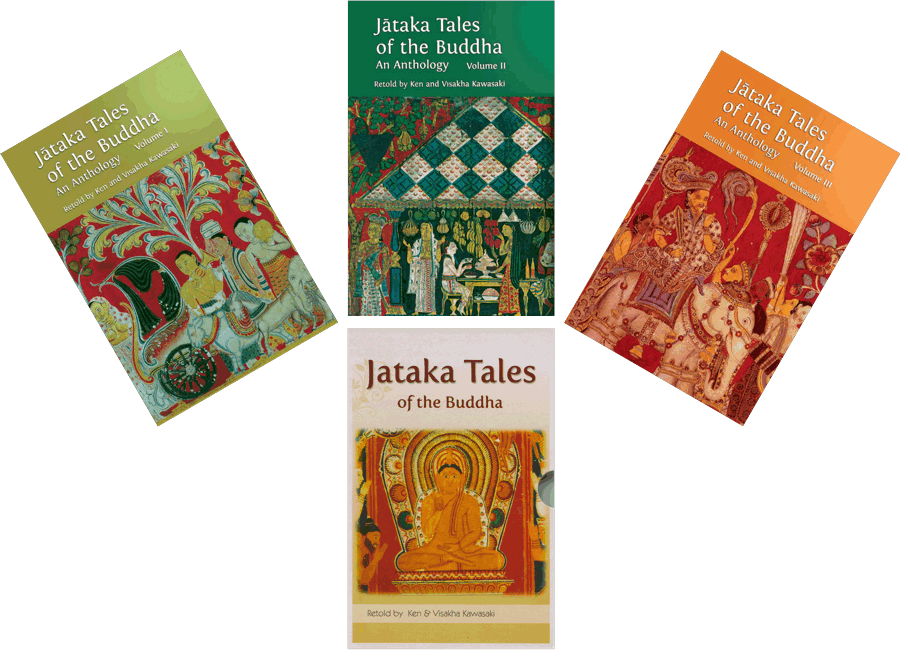 |
||
|
Jataka Tales of the Buddha
An Anthology |
||
|
Retold by Ken and Visakha Kawasaki
|
||
|
Now available in the USA
for prompt delivery, without enriching Amazon --and $10 cheaper! $30 - Click the icon to order |
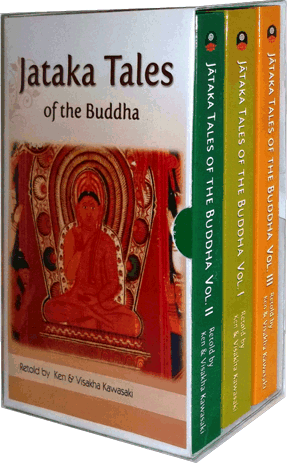 |
|
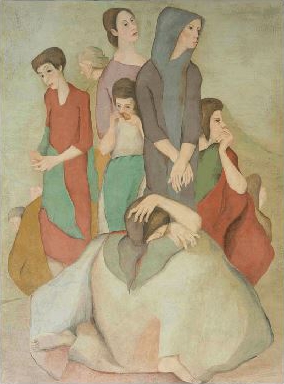 |
|||
| "Hunger," by Luis Quintanilla. Click to read the story behind the painting. | |||
A final word about the Jatakas and Amazon. We received notice from Amazon that one copy had been damaged in transit and thus unfit for sale. We immediately requested that they send it to the prison where Steve is confined. It is already in the library there. Here is the letter we received from Steve, showing his close reading of our last report. His insightful words brought tears to our eyes.
|
Greetings Ken & Visakha, I hope that everyone there is enjoying good health and peacefulness of mind. Speaking of health, how is the hand coming along Ken? I, myself, am doing well. I received "Relief Notes," and, as always, it was an interesting and thought-provoking read, and I truly enjoy looking over the pictures you printed along with it. I was just such an individual who believed that no violence had ever been committed in the furtherance of Buddhism. When my brother has the opportunity, he will look on the internet for the wars you mentioned in the article, as well as the two articles in Inquiring Mind regarding Ven. Bhikkhu Bodhi and his discussion with Ven. Bhikkhu Thanissaro. I applaud your continued efforts to shine a light on the horrible violence committed against the Rohingyas, and call for peace amid the horrible tragedy which occurred Easter Sunday. It was my understanding that the importance of Noble Friends was because those on the Path as well were best suited/more inclined to point out errors in judgement that would hinder one from attaining the ultimate goal. In modern day parlance, "We in the Buddhist community are our brother & sister's keeper." Always being mindful to do so in a loving, caring manner, one has a RESPONSIBILITY to point out the misunderstanding or unwholesome behavior of others in the community. Your efforts are just that, and again, I applaud you for it! I cannot agree with you more regarding the changing of the motto "Save The Earth," to "Save The Humans." Even were humans to annihilate ourselves with nuclear war, the Earth would recover eventually. I see society's unwillingness to recognize and act upon global warming and mass planetary pollution as a slow suicide. Perhaps the majority of the world's population doesn't grasp the personal impact it will all have on them. I would like to believe that, if they did, swift and concrete action would begin to take place to reverse the trend on global warming and clean up the planet's large-scale material pollution. I particularly enjoyed your message from your "vegan friend David." I have been observing a vegan diet for over 20 years in a prison environment. Despite the rosy picture they try to portray in the published menus, regular prison fare is not very tasty (at least not here in Michigan), and the religious diet (vegan) is perhaps a little bit worse. But one is provided what is needed nutritionally for the most part. My practice is primarily Theravavda based, and it was two years of study and practice before I came to the realization that I should observe a vegan diet. Many already know of the Buddha's Cousin, Devadatta, who tried to get the Buddha to make such a diet restriction mandatory. The Buddha explained that there is no merit in mere mechanical observances, that one must come to truly understand for oneself, why one should make such an observance or practice in a particular manner. For me, that meant that I did not wish to be responsible for the harm or theft from other living beings. Were I to partake of a diet other than vegan, I felt that I would be contributing to conditions for others to commit that harm or theft, in my name, so to speak. And, in so doing, essentially adopted in part the unwholesome karma. Again, this is my realization and mine alone. I fault no other who partakes of foods containing animal products. But my vegan diet has also extended to other aspects of my practice. I hope you will understand my situation of being in prison and not judge me harshly. But there have been times when I have had unwholesome thoughts towards others that involved violence. Yet a moment or two later, I am reminded that I observe a vegan diet so as not to harm other living beings. How am I to justify harming another prisoner (verbally or physically) for a perceived slight or misdeed? I CANNOT. This realization dissolves, as it were, any further unwholesome thoughts. The other members of the Buddhist group here asked me to pass along their gratitude for your gift of the 3-book collection of Jataka tales (thank you). They were eagerly snapped up to be read. I have mailed Shu's "Thank you" card for the gift from Ewen. Shu is the 62-year-old gentleman we purchased the card-making supplies for, with the money Ewen sent me. It's been a joy seeing him hawking his greeting cards around the yard--tilting them to show off the use of glitter or metallic pens. I will close for now and get this uploaded onto to the kisok to send to you. I am honored that you would share one of my previous letters with everyone else. My practice has come as far as it has in large part to your support. I pray that I am able to make as much a difference in the practice of others I come into contact with, as you have made in mine. May you remain well, peaceful, and happy by the power of the Triple Gem. With Metta, |
||||||||||||||||||||||||||||||||||||||||||||||||||
|
||||||||||||||||||||||||||||||||||||||||||||||||||
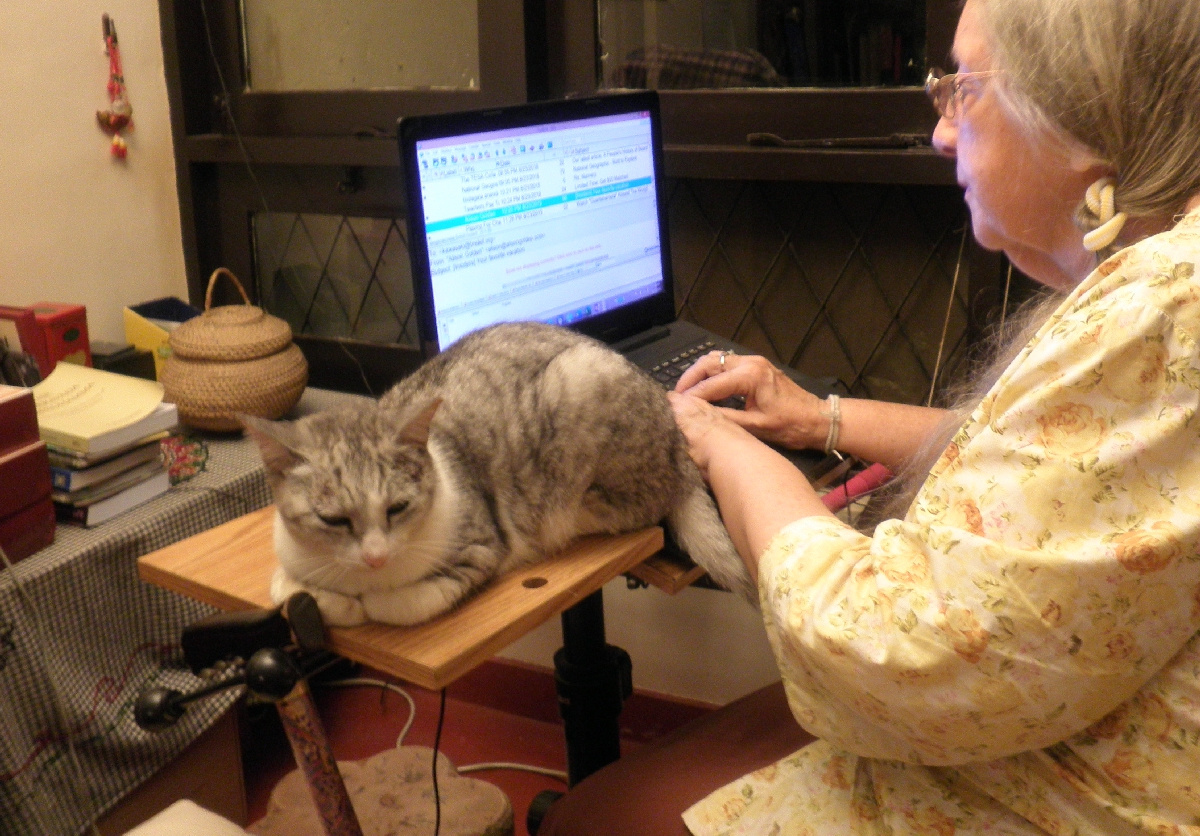 A couple of weeks ago, Visakha's computer crashed. We took it into town to Chanaka, our trusted computer expert and fix-it man. He took one look at it and asked, "Do you have a gray cat?" He had noticed immediately that the fan vent was clogged with cat hair. We wonder how that happened!
A couple of weeks ago, Visakha's computer crashed. We took it into town to Chanaka, our trusted computer expert and fix-it man. He took one look at it and asked, "Do you have a gray cat?" He had noticed immediately that the fan vent was clogged with cat hair. We wonder how that happened!
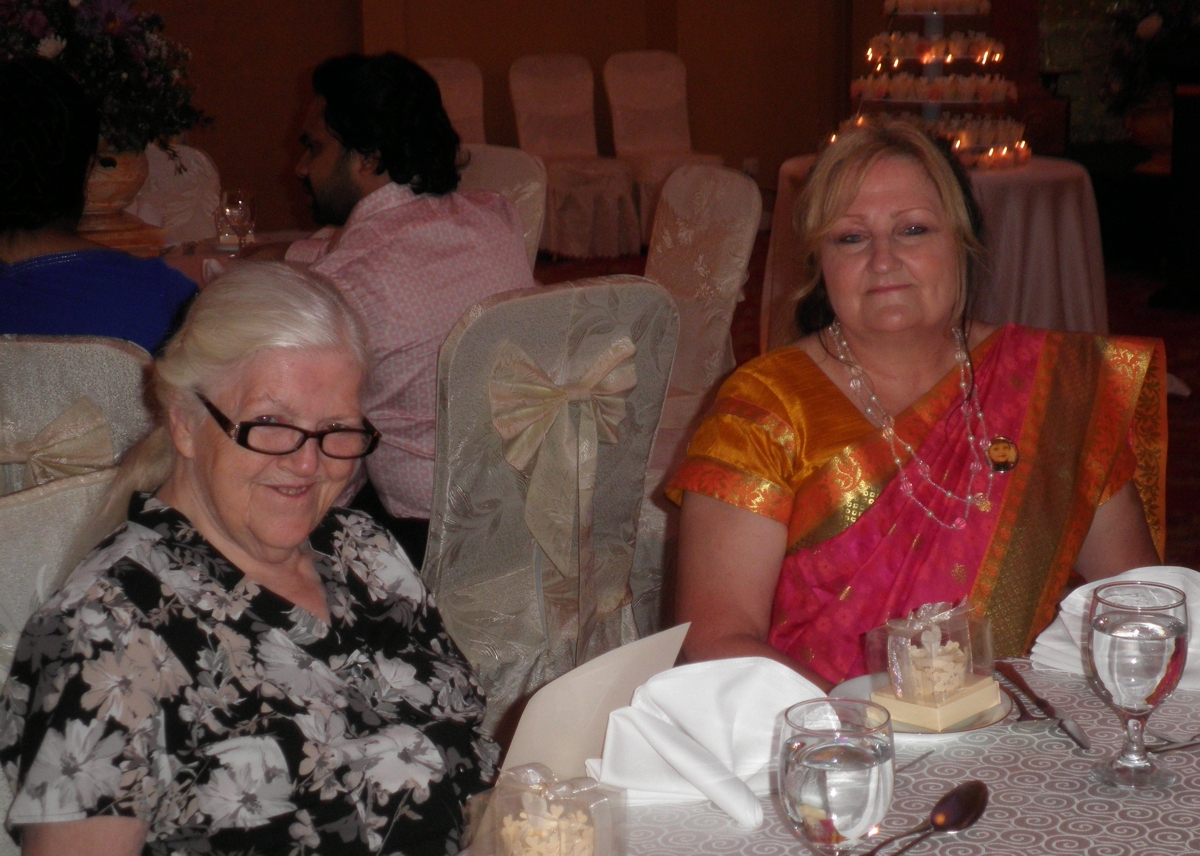 In August, our friends, Dorothy and Jennie, came to Sri Lanka and stayed with us for sixteen days. They had a wonderful time, and we very much enjoyed their visit. Their trip forms a separate report, but you can access it by clicking here or on their photo.
In August, our friends, Dorothy and Jennie, came to Sri Lanka and stayed with us for sixteen days. They had a wonderful time, and we very much enjoyed their visit. Their trip forms a separate report, but you can access it by clicking here or on their photo.
On August 16 and 18, Mike and Rushma celebrated their marriage at two different hotels. The first was in the evening at the Mahaveli Reach Hotel in Katugastota. At this event, the couple (separately) ,with their parents, were escorted into the hall by bagpipes. The Sri Lanka Navy Band provided lively music throughout the evening, beginning with "The Beer Barrel Polka," honoring Mike's Polish heritage. It was wonderful to see Rushma's parents and Mike's mother again and to meet Mike's Aunt Carol, about whom we had heard so much. The second was at the Grand Kandyan Hotel in Kandy. We were able to be there for the morning activities, but we had to leave early to take our guests to the airport.
 |
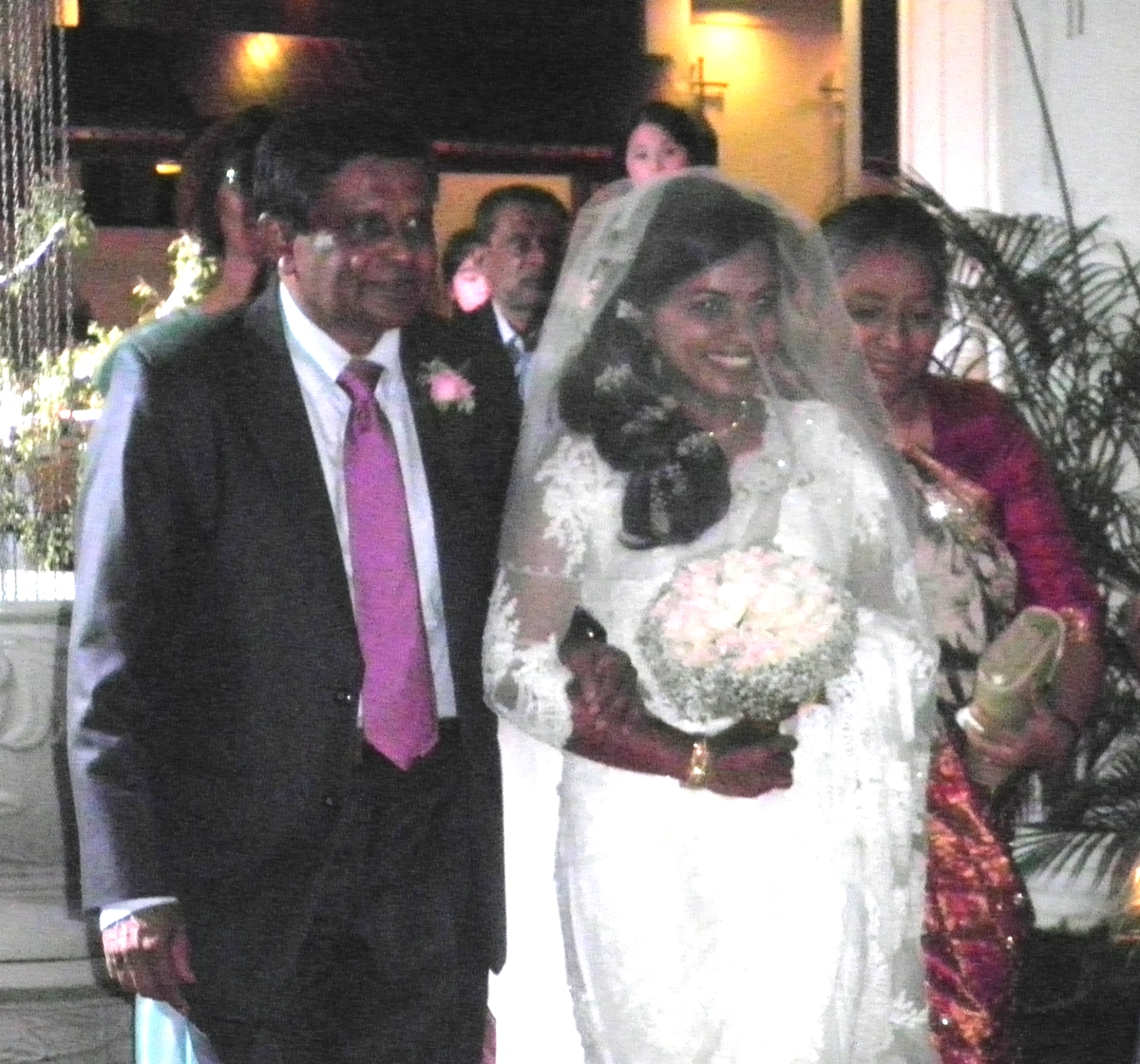 |
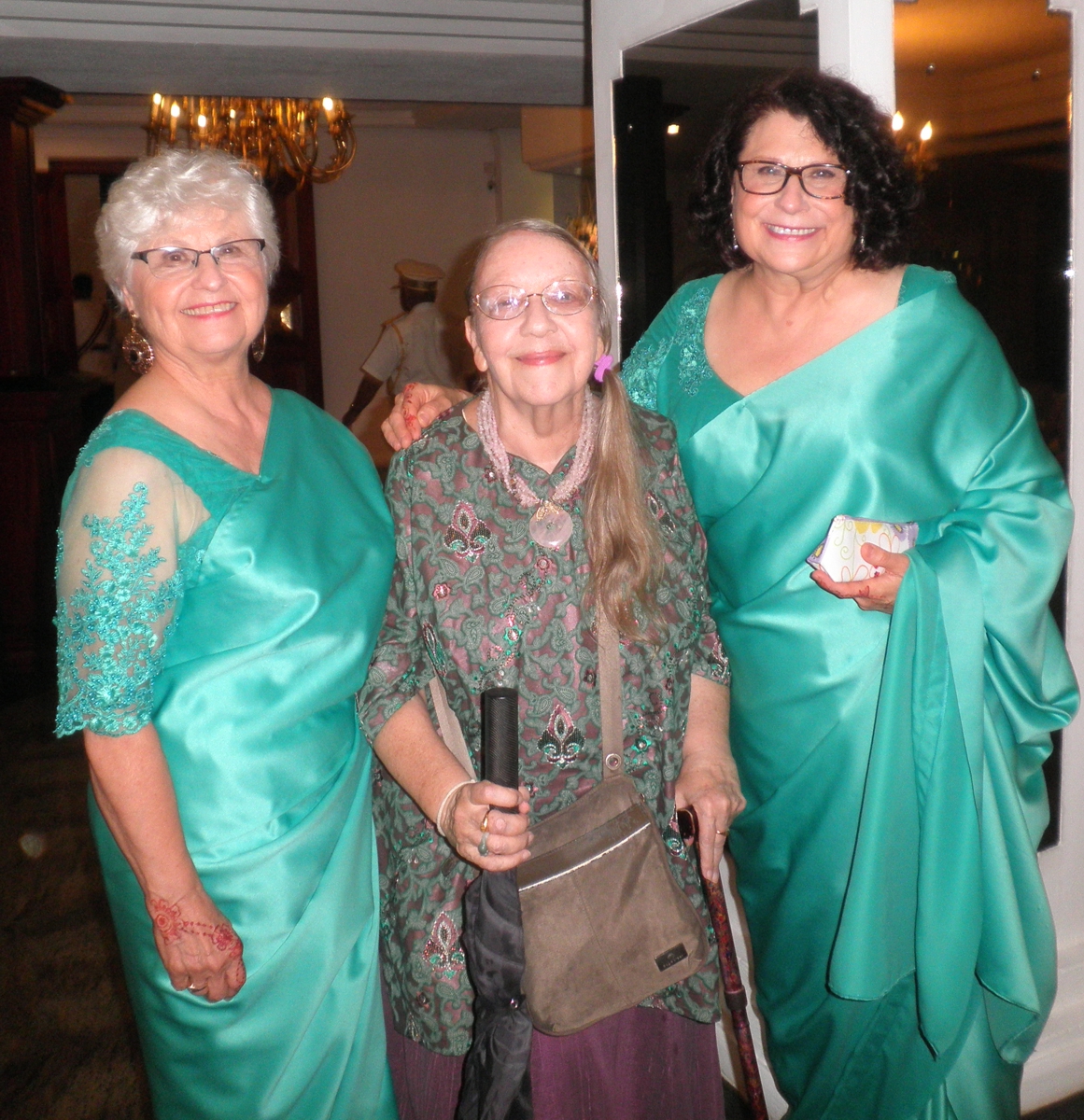 |
 |
 |
|||
|
Click any photo to view it larger. For more photos of the two celebrations, click here to visit a page from the report of Dorothy's and Jennie's visit.
|
|||||||
While Justin and Chandani, one of Lily's relatives who lives in India, were staying with us, we visited the Kandy Cancer Home to offer high tea.
 |
 |
 |
 |
|
We also visited the SanghaWard of Kandy Hospital to offer dana and some toiletries to the inpatients, the rope for the elevator, and ten mattresses. About two weeks later, we vistied again to offer the vacuum sweeper and blender which the attendants had requested.
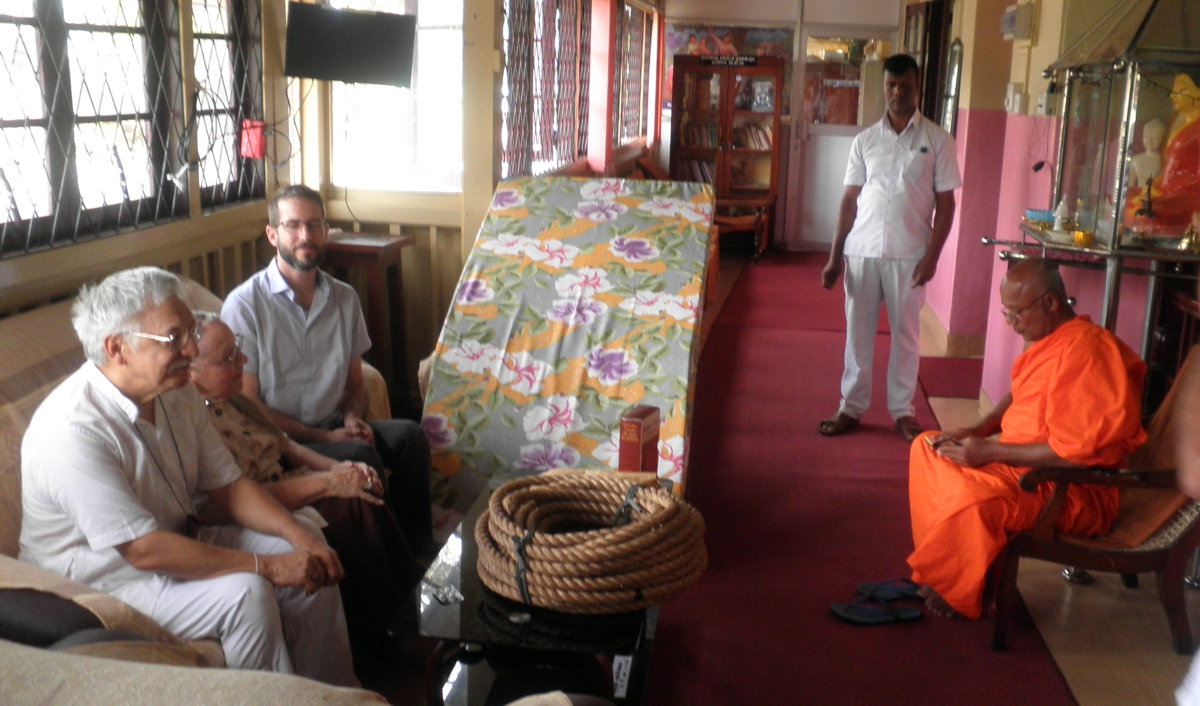 |
 |
||
| Click this photo to see a PDF file with all the photos of this presentation. | Click this photo to see a PDF file with all the photos of this presentation. | ||
 |
|
| A recipient of a Jaipur Foot prosthesis | |
Since our last report, we have celebrated three birthdays: Ken's and Shehan's in August and Visakha's in September. Dorothy and Jennie were here for Ken's. Our gift to Shehan was a new bicycle. He had outgrown his old bike, which, the next day, he donated to a young boy suffering from leukemia, who has been staying in the Kandy Cancer Home for almost a year. For Viskaha's birthday, we were very happy that Ven. Ananda, the General Secretary of Mahabodhi Society in Bangalore happened to be in Sri Lanka and was staying with us. The day before, Ken took him and Sakko, one of our students who spent many years in Mysore at the Mahabodhi School, to the International Buddhist Museum. After that visit, they dropped in at Malwatte MahaVihara to pay respects to the MahaNayakeThero.
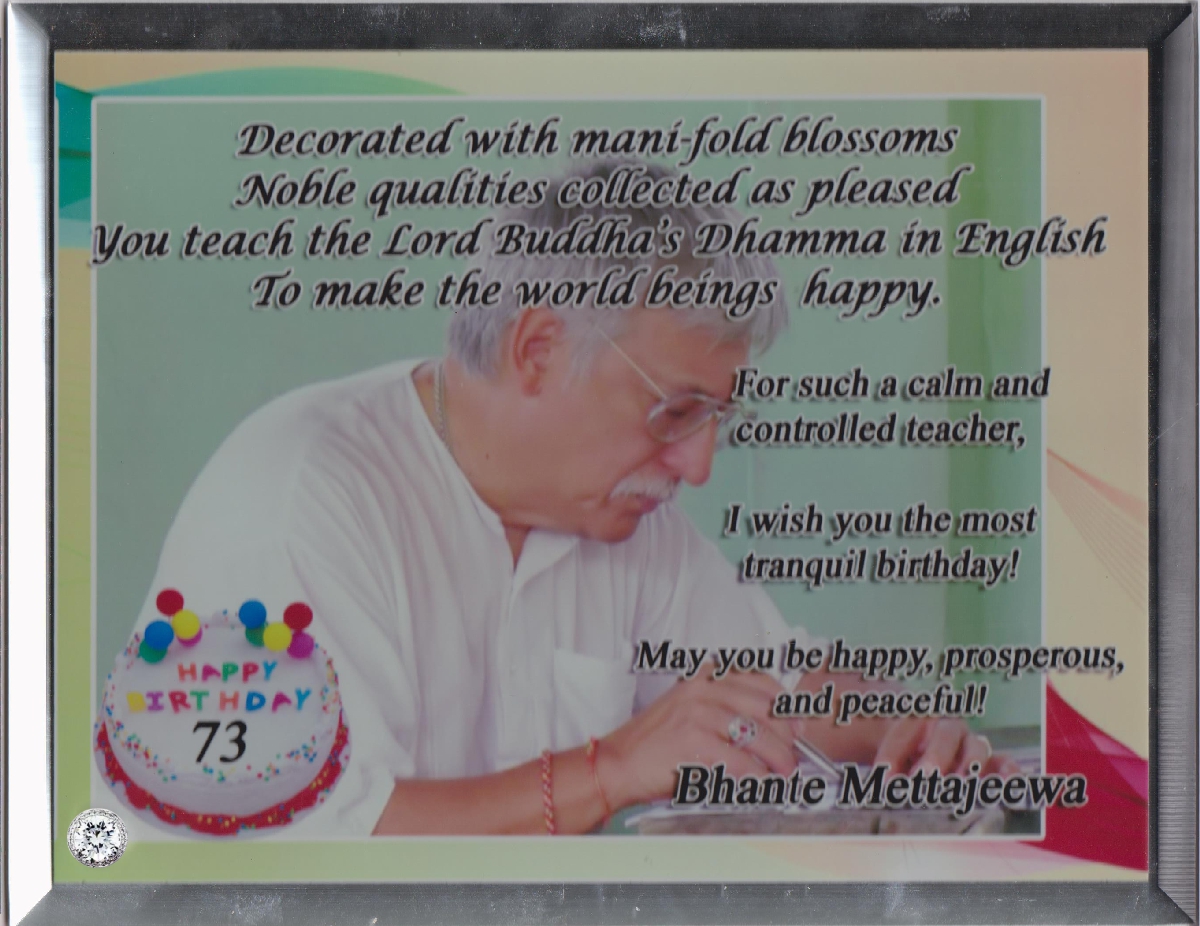 |
 |
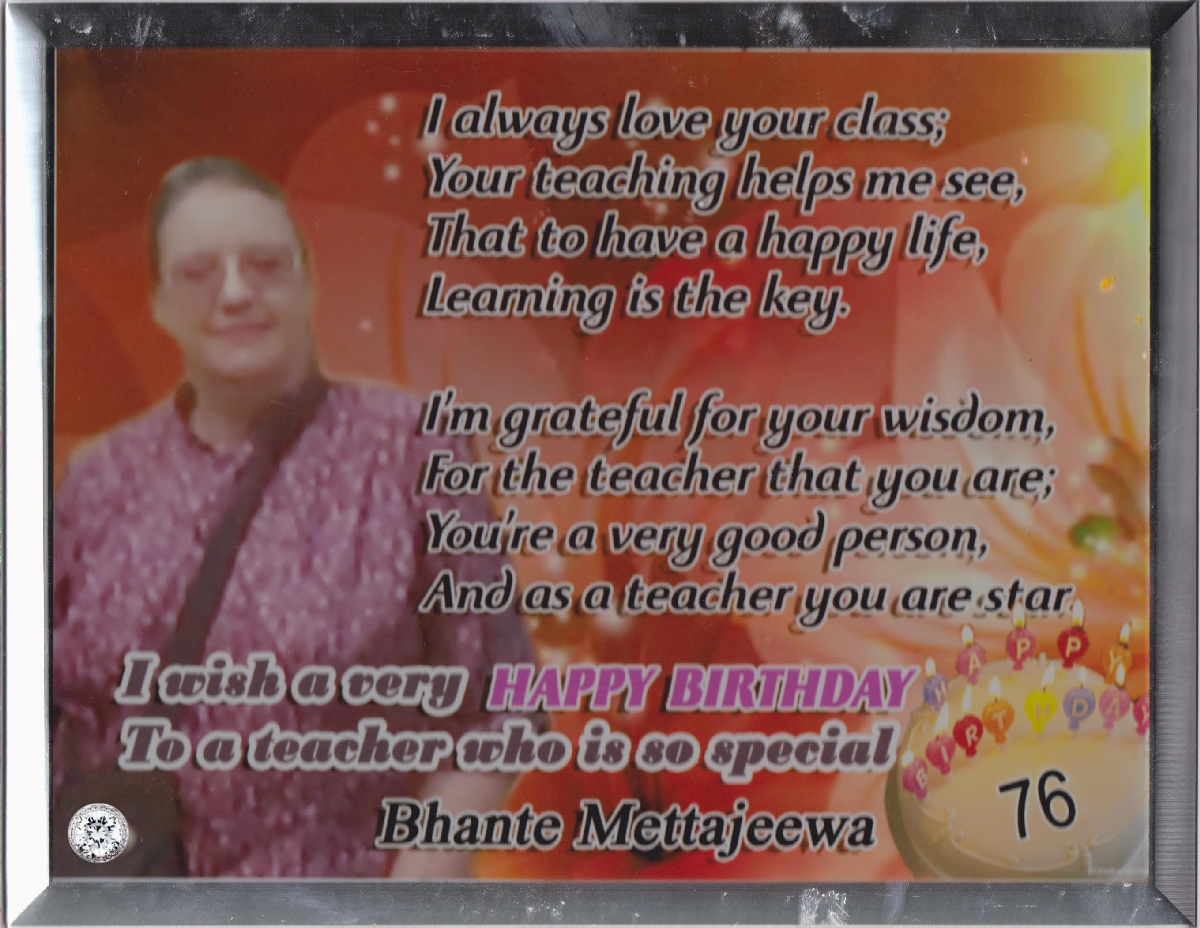 |
 |
|||||
| One of our students gave Ken this plaque as a birthday gift. For more photos of the day, click here to visit a page of Dorothy's and Jennie's visit. | At the time of Shehan's birthday, some relatives were visiting from the UK. They had a great time, and Shehan enjoyed being a Kandy tour guide. Click here to see more photos. | One of our students gave Visakha this plaque as a birthday gift. For more photos of the day, click here. | Ven. Ananda receiving an image from Ven. Sumangala, Mahanayaka Thero of the Malwatta chapter of Siam Nikaya, with Sakko and Ken | |||||
It's difficult to maintain outrage. In today's world, there is so much that is outrageous, unfair, unthinkable, brutal, and cruel, that the mind tends to become numb. We find ourselves almost impervious to each new tragedy and injustice, and sometimes we just want to run away.
| cutting school lunches | approval for bee killing pesticides |
| discontinuing food stamps | deregulation of all the causes of pollution |
| repealing Obamacare | mining and drilling concessions in protected areas |
| cutting "Meals on Wheels | oppressive student loans |
| ending protection for endangered species | hunting in national parks |
The list is endless, but every move by this administration benefits those who already have far too much. It is all part of corporate greed and predatory capitalism.

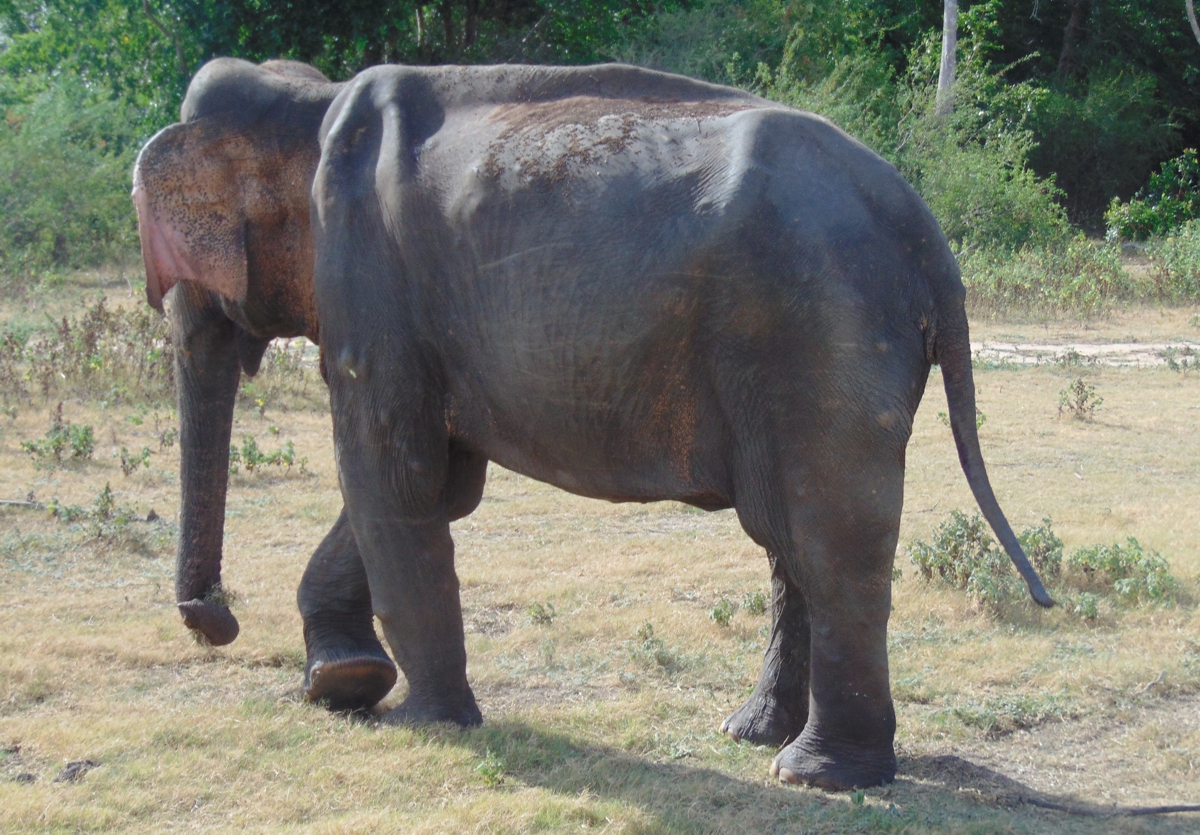
This was a recent headline in "Common Dreams." How sick!
In 'Disgusting' Move, Jeff Bezos Abruptly Cuts Health Benefits for Nearly 2,000 Part-Time Whole Foods Workers |
|
Topping it all off are the Trump administration's racist, heartless, despicable policies on immigration and refugees. The refusal to grant asylum, the concentration camps, the separation of children from their parents, the kids in cages, the ICE raids, the deportation of critically ill children are all appalling. When we view this in combination with global warming and the fires in Brazil, we repeat that refrain from a recent FaceBook posting:
We realize that, in previous reports, we have written fairly extensively about the looming climate catastrophe and civilization's terrifying descent into vicious, genocidal fascism, in the US, Brazil, the UK, Burma, India, and so many other countries.
When the headline about Bolton's successor reads:
Trump's Acting National Security Adviser Said Nuclear War With USSR Was Winnable |
|
we face a threat over and above climate change.
However we slice it, we're facing, in Chris Hedges words, "The Last Act of the Human Comedy"
| There is nothing new to our story. The flagrant lies and imbecilities of the inept and corrupt leader. The inability to halt the costly, endless wars and curb the gargantuan expenditures on the military. The looting of a beleaguered populace by the rich. The destruction of the ecosystem. The decay and abandonment of a once-efficient infrastructure. The implosion of the institutions, from education to diplomacy, that sustain a functioning state. The world has seen it before. It is the familiar disease of the end of a civilization. At first it is grimly entertaining, even amid the mounting suffering. But no one will be laughing at the end | |||
As Buddhists, we should frequently recollect that all birth ends in death, that all health ends in sickness, and that all success ends in failure. Wishing it were otherwise is a source of great suffering. Still, we are in the world, we are alive, and we do have before us choices and possibilities for thoughts, words, and actions, either helpful or harmful, useful or counter-productive.
We are reminded of a class we taught here some years ago, in which we argued that the Buddha clearly advocated non-violence. One monastic studying with us took strong exception to our claim and declared that in the Maha-Ummagga Jataka, "Mahosadha's Incomparable Ingenuity," the Bodhisatta approved of war by advising the king to engage in battle. We had to point out that that student was wrong. In that lengthy story, there is no bloodshed. In fact, there are no casualties whatsoever.
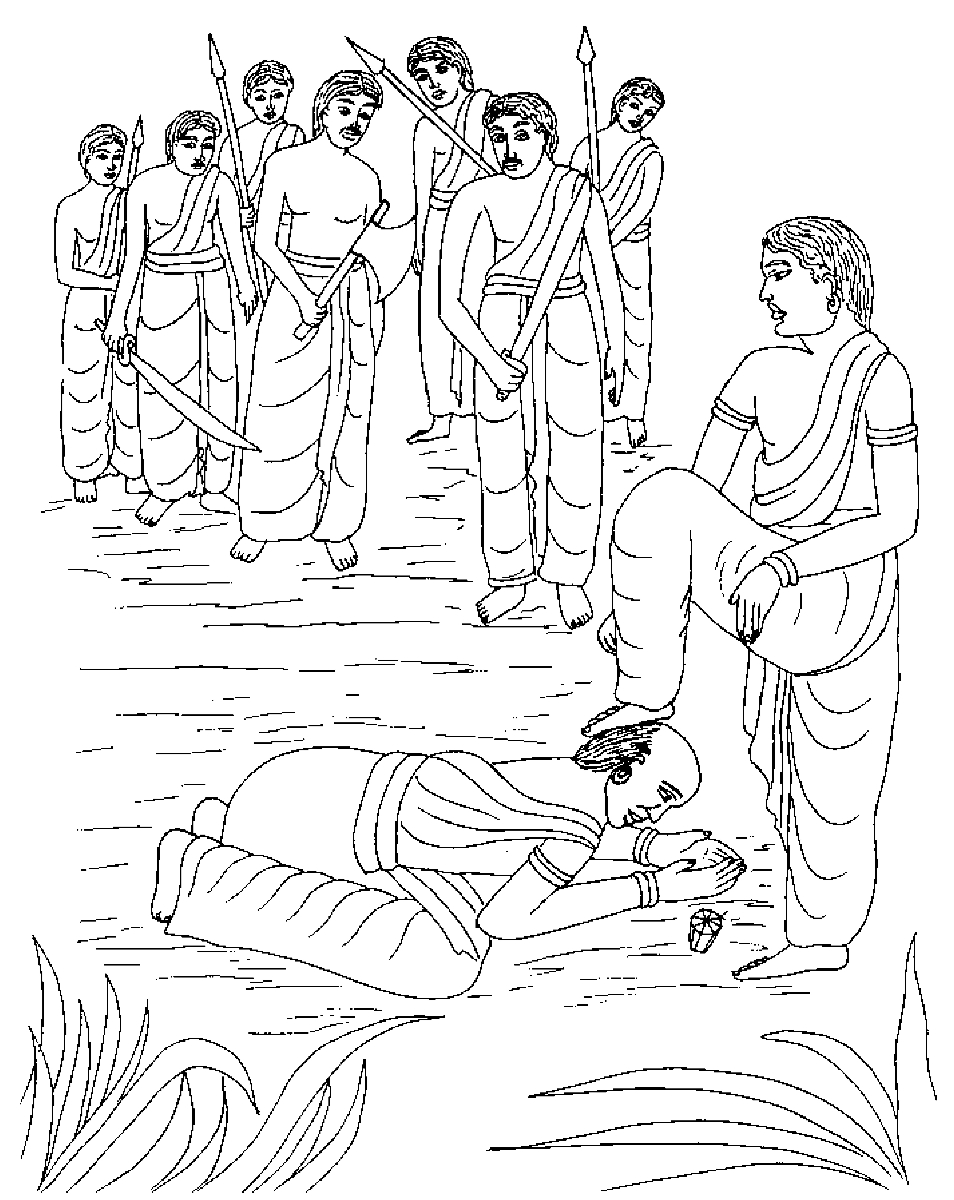 |
|
| Mahosadha proclaimed victory over the rival king's wicked advisor. When the greedy advisor stooped to retrieve a priceless gem which Mahosadha had dropped, the Bodhisatta declared that the foolish man was paying respect to him.(Jataka 216 in Jataka Tales of the Buddha: An Anthology, Vol.III) | |
Violence got us where we are today, and the story of the great Mahosadha demonstrates that non-violence succeeds, whereas violence invariably leads to more violence. We must agree that
Many people are looking at the Trump administration as an ongoing coup. How are we to resist? In the above article, David Swanson points out that, in the coup attempt in Algeria in 1961, massive protests, accompanied by a general strike, refusal to obey military orders, and people's occupation of strategic sites completely disrupted national operations, and the coup collapsed.
Various groups called for such a strike and nonviolent protest on September 20 to oppose climate change, which will continue for the whole week. This is an opportunity to shutdown Washington, D. C. and to force not only the government, but also the corporate empires to recognize the urgency to prevent this looming disaster. As David Swanson says, "The people of DC are of course occupied by a colonial overlord known as the U.S. government, and they will never overcome it violently. Neither is violence a strong enough tool to save the health of this planet. But nonviolence might be."
In conjunction with this, Buddhist Relief Mission held an event: (Click the announcement to see photos and details.)
Much more than meditation is needed, however, to forestall or prevent climate catastrophe. Worldwide, Extinction Rebellion, to which Chris Hedges refers in the article above, is sounding a clear alarum bell, and their strategy is very much in line with Swanson:
| We are promoting mass "above the ground" civil disobedience -- in full public view. This means economic disruption to shake the current political system and civil disruption to raise awareness. We are deeply sorry for any inconvenience that this causes. | |||
Within this framework, there is Extinction Rebellion Buddhists, also active in many countries.
It is interesting to note that Buddhists, at least, some Buddhists, were paying attention to climate catastrophe as early as 1993, more than a decade before Al Gore's "An Inconvenient Truth."
Very recently, David Loy, whom we have cited in previous reports, launched a new book, Ecodharma. He urges "ecosattvas" to take immediate action.
Drawing from the same article we cited earlier, we will let Chris Hedges conclude:
| And yet, no more than 3% to 5% of the population need be engaged to challenge despotic power. This means, first, naming and accepting reality. It will not be easy. It means grieving for what is to come, for there is certain to be mass death. It means acting, even if defeat is certain, to thwart those who would extinguish us. Extinction Rebellion plans to occupy and shut down major city centers around the globe in October. This is a good place to start. By defying the forces of death, we affirm life. | |||
UPDATE!
 |
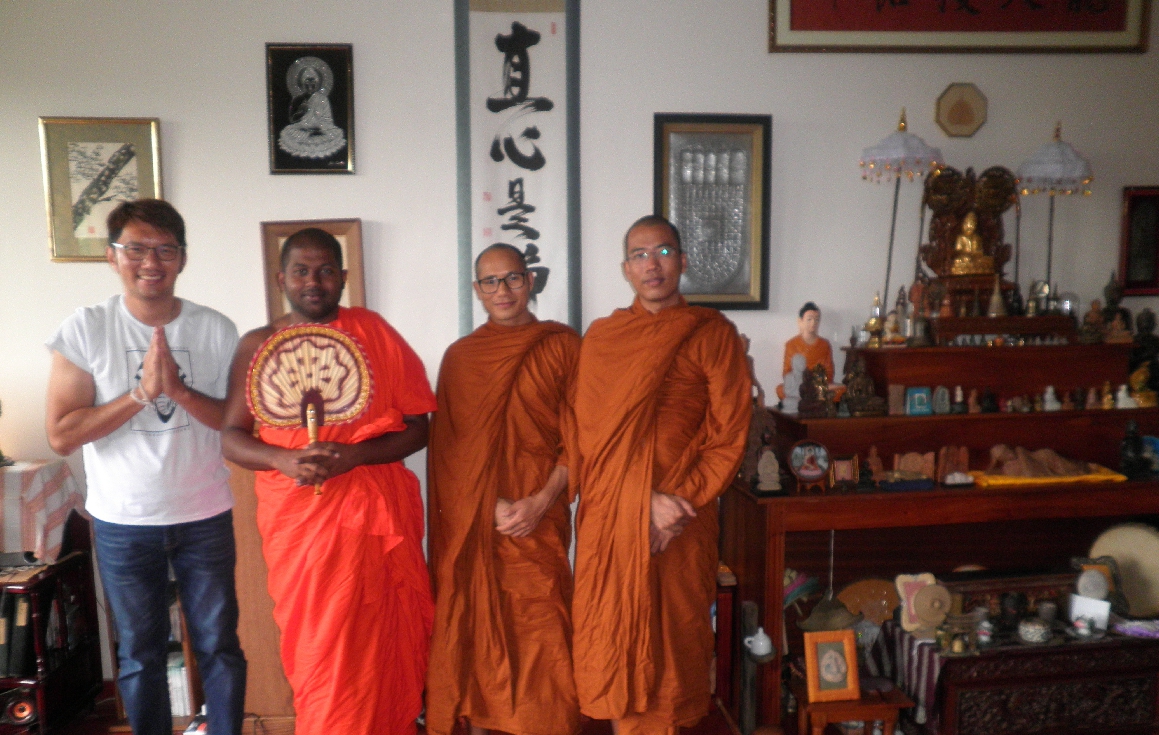 |
 |
|||||||||||||||||
| Click this photo to see "A Garden Miscellany"with more photos from our garden. | Ven. Ananda, of the Buddhist College of Singapore, visited us with one of his students and two of ours. | ||||||||||||||||||
 |
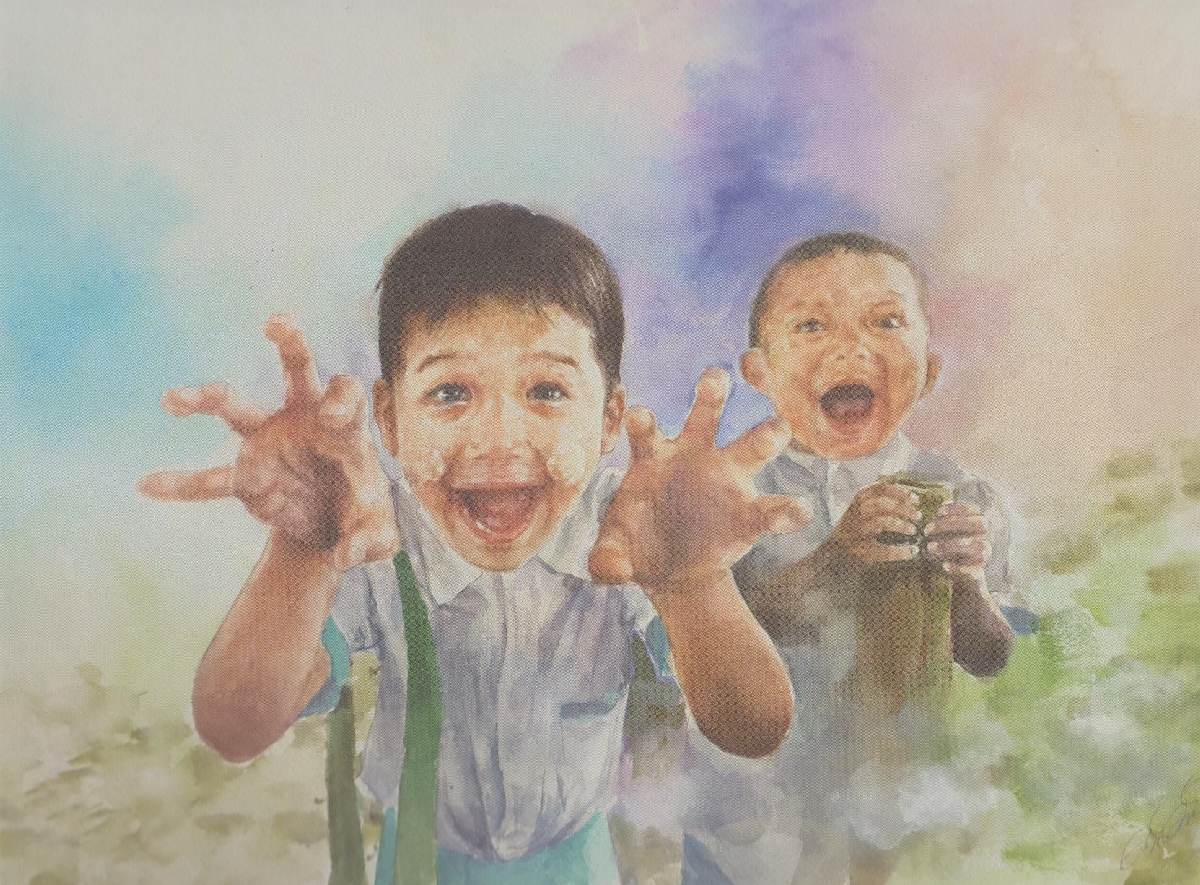 |
||||||||||||||||||
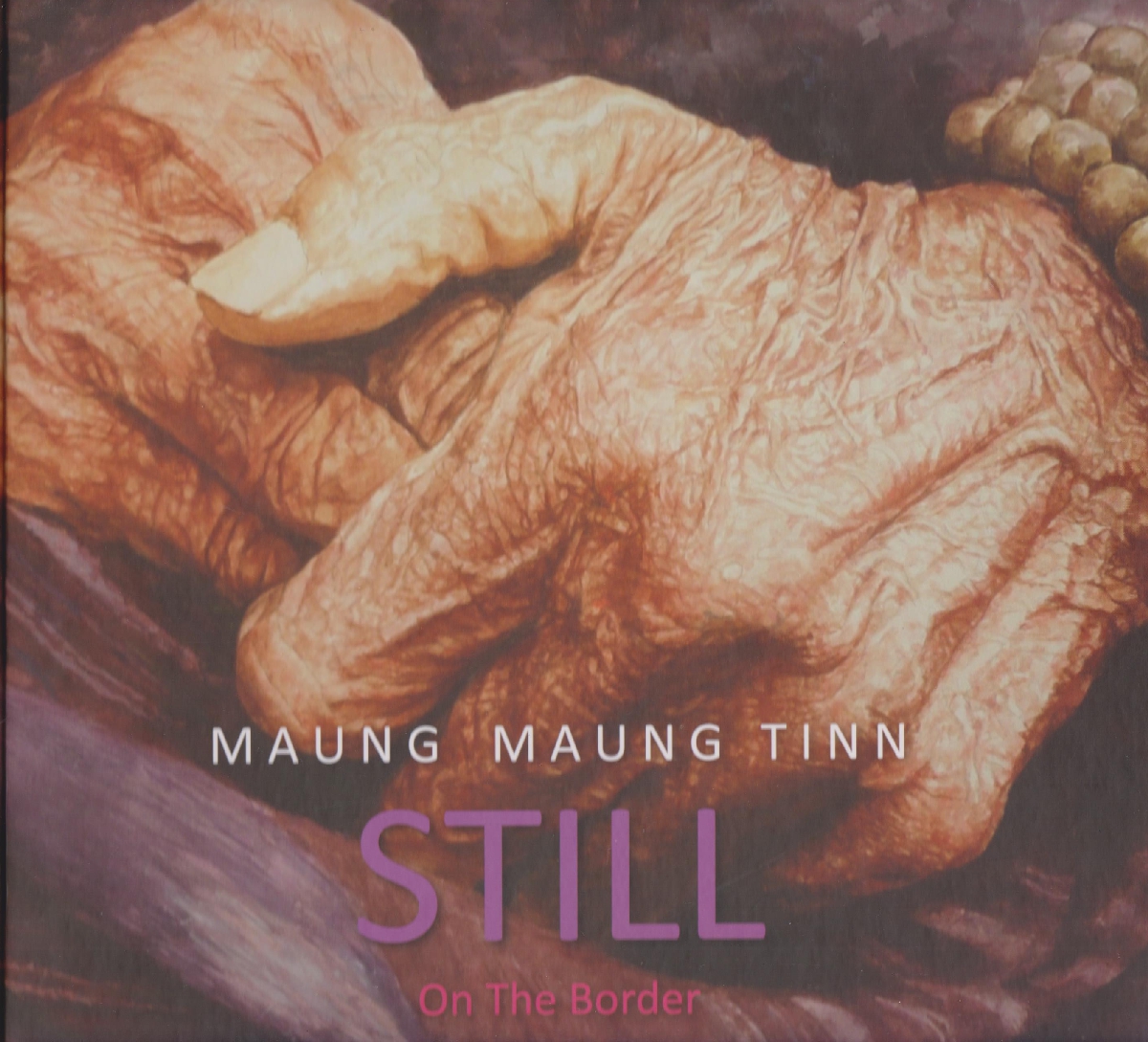 |
|||||||||||||||||||
| Juice from a Spanish ecologically-minded company Click to enlarge |
|||||||||||||||||||
| We were honored to receive a copy of Still On the Border, by Maung Maung Tinn, an artist working at Dr. Cynthia's Mae Tao Clinic in Mae Sot. This is a collection of his watercolors, and it is absolutely stunning. A collectible copy is available on Amazon. | |||||||||||||||||||
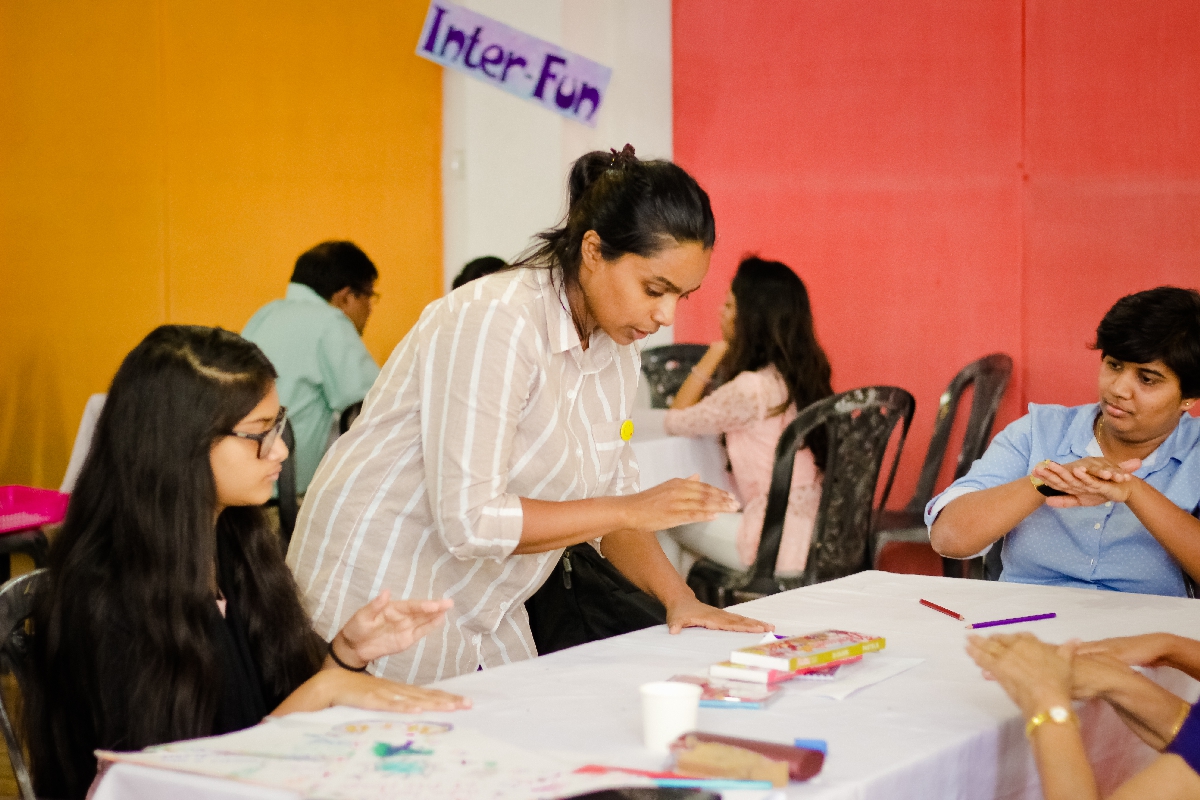 |
 |
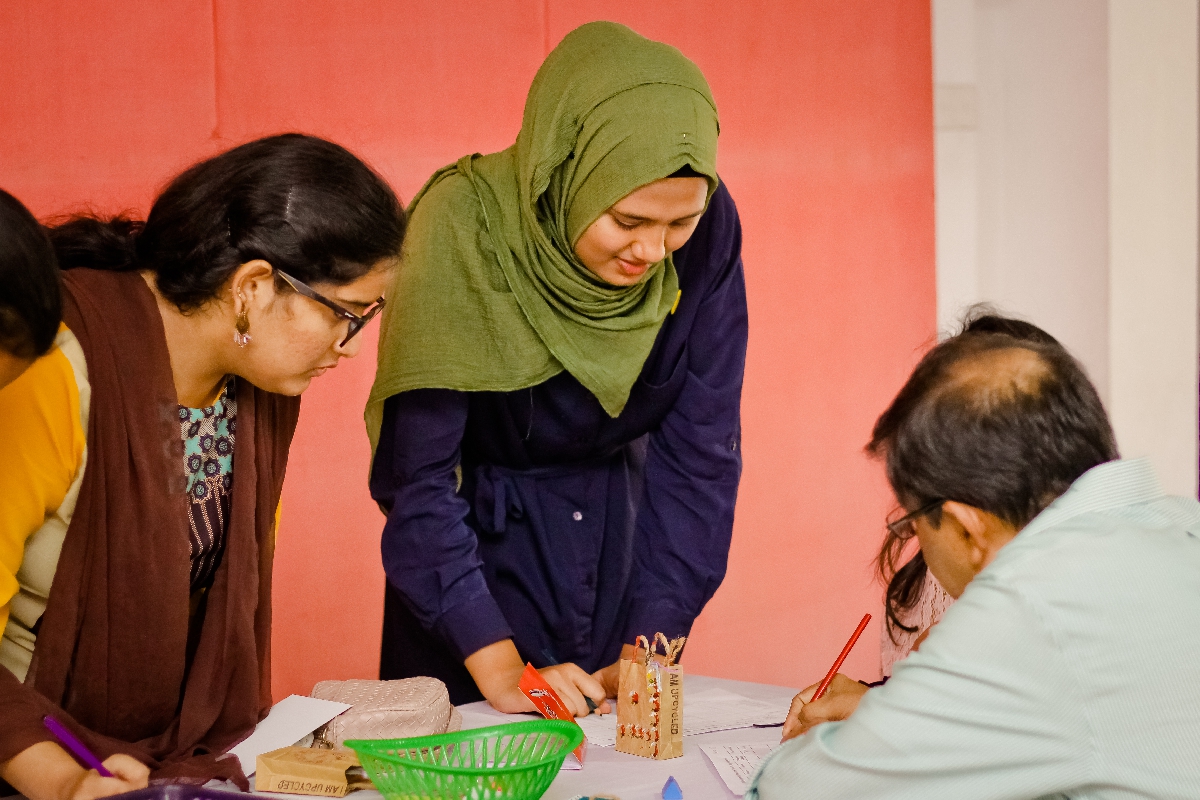 |
|||||||||||||||||
| On August 4, Rushma moderated an interfaith workshlp called, "You Me Us Together." The program included music, cooperatively creating artwork. and an activity to help participants learn about the world's major religions. The workshop was hugely successful and is going to be repeated at various locations around the country. Congratulations! | |||||||||||||||||||
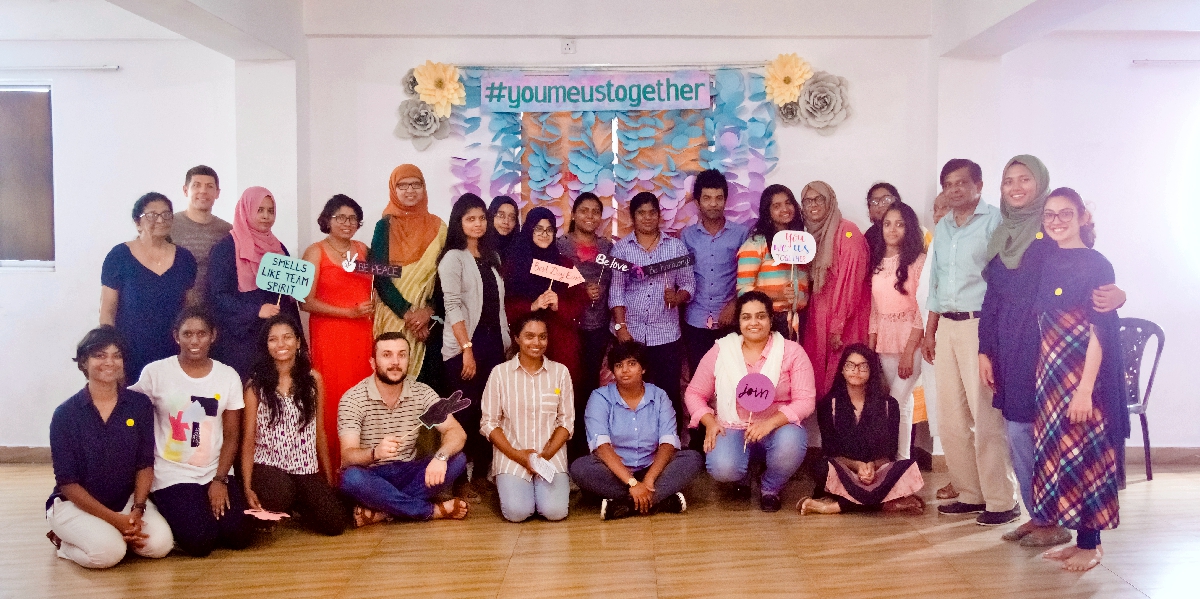 |
 |
||||||||||||||||||
|
Click the collage to view it larger
|
|||||||||||||||||||